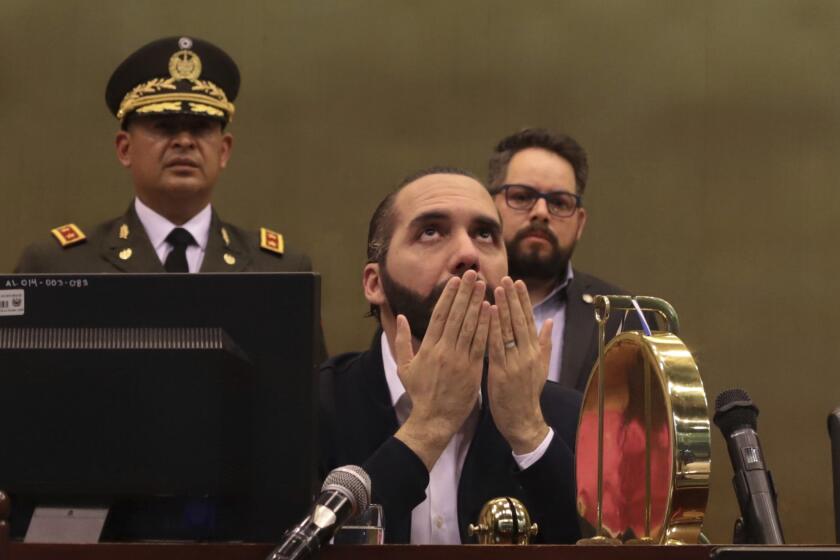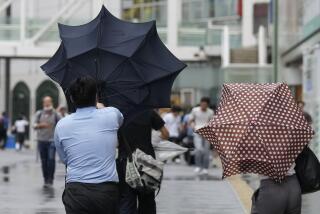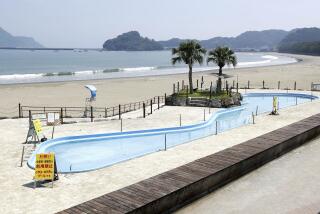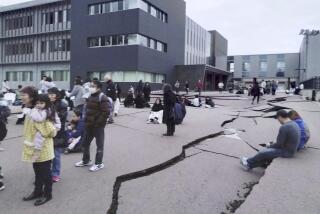Japan declares nationwide state of emergency to combat coronavirus
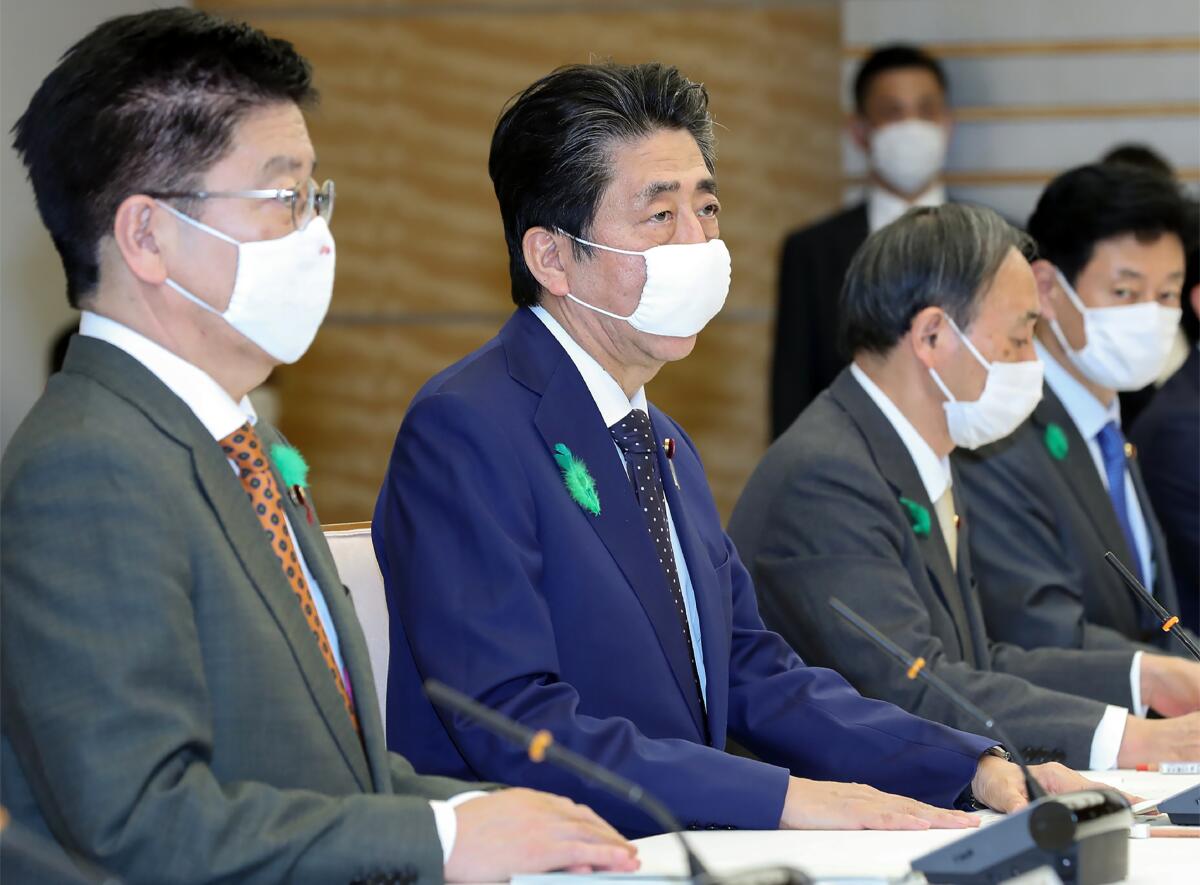
- Share via
TOKYO — Japanese Prime Minister Shinzo Abe announced a state of emergency for all of Japan on Thursday, expanding a previous order that covered only Tokyo and several other urban areas.
The measure is to take effect Friday and last until May 6, the end of Japan’s Golden Week holidays.
In a similar step to one taken in the U.S., where coronavirus relief payments are being issued to help Americans through the crisis, Abe also announced that 100,000-yen ($930) cash handouts would be given to all 120 million Japanese citizens.
The new state-of-emergency decree is aimed at stopping the cross-border movement of people and achieving sufficient social distancing “to overcome this national crisis in an all-out national effort,” Abe said. Japan has more than 9,000 coronavirus cases and has recorded about 150 deaths from COVID-19.
As coronavirus cases increase, some governments are trying to protect workers and businesses from financial ruin.
Abe’s previous declaration of emergency April 7 covered only Tokyo and six other prefectures deemed to be at highest risk. He issued a stay-at-home request to the people in those areas, but that request was later expanded to include the rest of the country.
Additional measures, including closures of nonessential businesses, have been in place only in the densely populated Japanese capital and the other prefectures covered by the original declaration of emergency. However, those measures do not carry penalties for non-compliance.
The nationwide decree came after Abe convened a meeting of experts Thursday and secured their necessary approval for such a step. In opening remarks at the meeting, Economy Minister Yasutoshi Nishimura said the partial state of emergency could not slow the infections effectively because people continued to move in and out of the designated areas.
Elite competitors face a different reality today since the pandemic upended their training and competition schedules for the Summer Games in Tokyo.
Abe’s coronavirus measures have been criticized for being too slow and too lax. Several local leaders had asked him to include their prefectures as part of the emergency, while other local officials took their own steps to stem transmission of the virus in their areas.
The arrival of the annual cherry blossom season meant that many Japanese were out mingling last month, which is likely to have contributed to the spread of the coronavirus.
The Japanese economy, like others around the world, is taking a hit from the pandemic. A burst of economic activity that had been expected to accompany the Tokyo Olympics this summer will not materialize until next year, following last month’s decision to postpone the Summer Games to July 2021.
More to Read
Sign up for Essential California
The most important California stories and recommendations in your inbox every morning.
You may occasionally receive promotional content from the Los Angeles Times.
